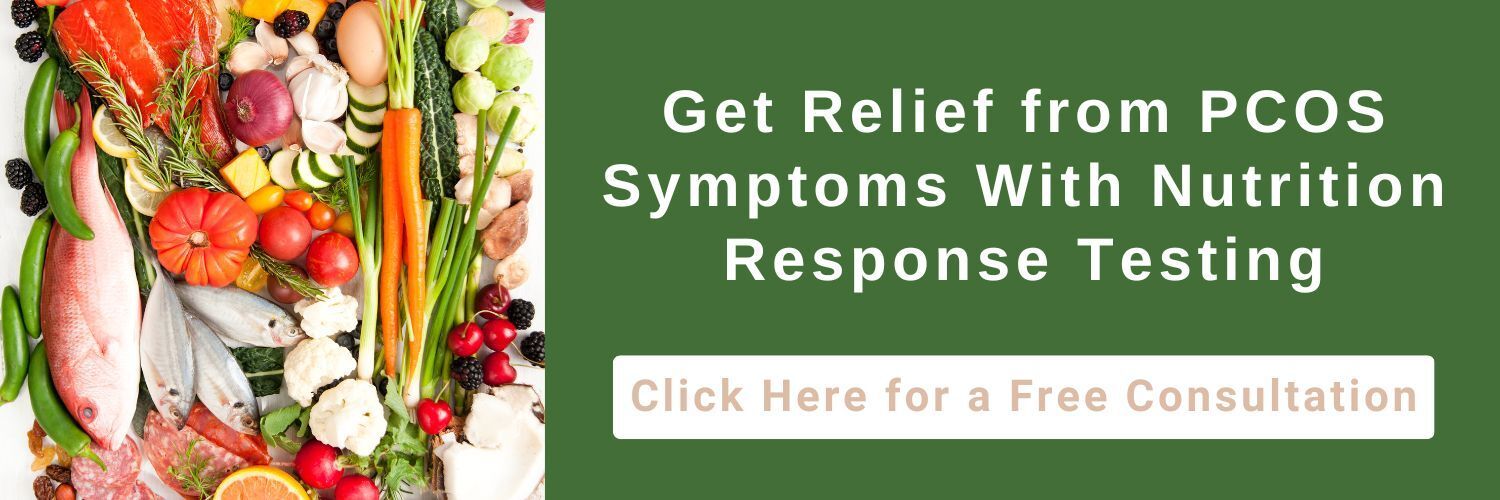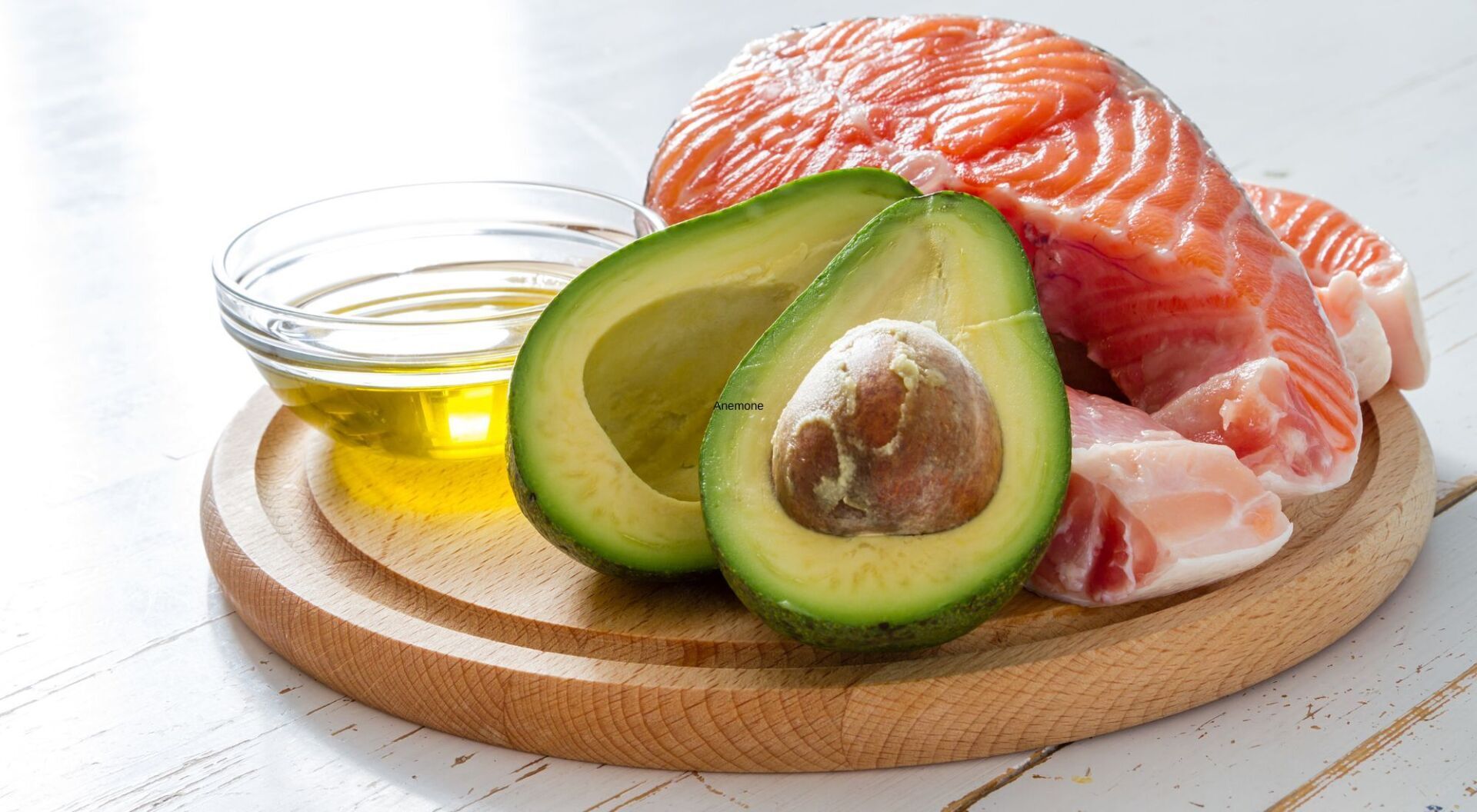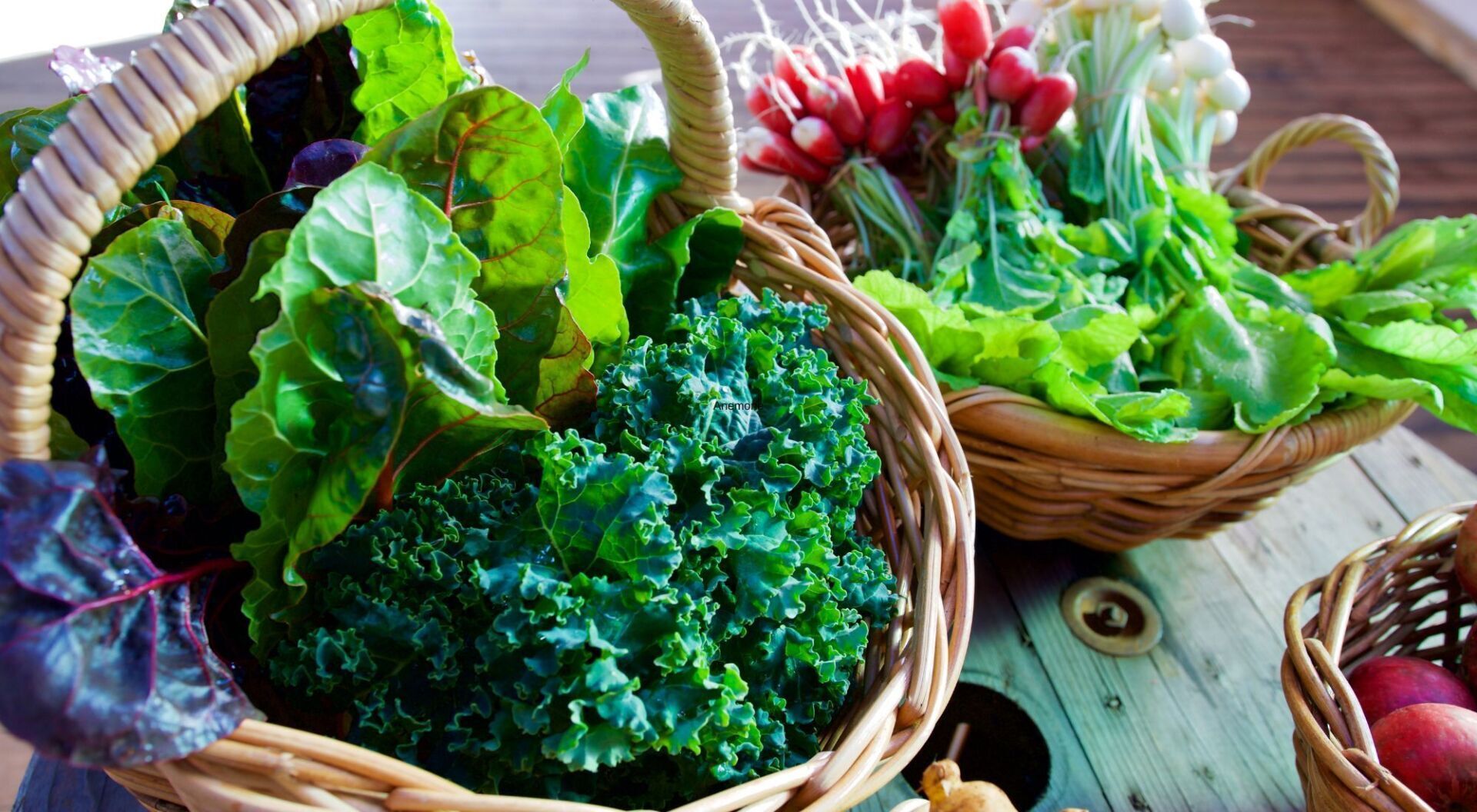The Best PCOS Diet: Foods To Eat & Foods To Avoid To Manage Symptoms
"The content below is not intended to be a substitute for professional medical advice, diagnosis, or treatment. Always seek the advice of your physician or other qualified health provider with any questions you may have regarding a medical condition."
You’ve experienced it all:
- Missed periods
- Weight gain
- Acne and oily skin
Polycystic Ovary Syndrome (PCOS) is no joke! You want relief, but you want natural relief. You know that starts with your diet.
So what foods should you eat and which ones should you avoid?
We’ve done the research for you and in this article, you’ll learn:
- Why diet plays a big role in your PCOS management
- What nutritious foods you should enjoy; and
- Which foods you should avoid
Table of Contents
Why Does Diet Matter for Women Experiencing PCOS?
Since there is no cure for PCOS, it’s crucial to find a way to manage symptoms. Though there are various medications doctors may prescribe to help with hair loss or ovulation, making lifestyle and dietary changes may offer the best and longest-lasting PCOS symptom relief.
Here’s why:
PCOS affects the body because of a combination of three major issues:
- Hormonal imbalance
- Insulin resistance
- Inflammation
Hormone imbalance is mainly due to a higher level of androgens, like testosterone, in females. This hormone imbalance is the main reason for symptoms like acne, weight gain, and difficulty getting pregnant.
Additionally, hormone imbalance can also be influenced by the insulin your body produces. Many women with PCOS experience insulin resistance (not being able to use the insulin you produce) or higher than normal insulin levels. The inability of the body to regulate insulin can lead to producing more androgens, and the cycle continues on and on.
Adding inflammation to the mix further complicates the cycle. PCOS can contribute to weight gain, extra weight is associated with inflammation, and inflammation can be linked with PCOS.
Though the integration of hormone imbalances, insulin regulation, and inflammation may be unavoidable, the good news is that diet and nutrition can help.
Eating a healthy, nutritious diet and staying active play a key role in:
- Losing weight
- Maintaining a healthy weight
- Helping your body use insulin efficiently
- Controlling inflammation
- Lowering blood glucose levels; and
- Ovulating
What Is the Best Diet for PCOS?
There is no one designated PCOS diet. But there are general dietary principles that women with PCOS should follow.
Every woman is different and exhibits PCOS symptoms differently. The best PCOS diet will be one that:
- Follows basic dietary guidelines
- Is suited to meet your needs; and
- Will help you meet your goals
The basic dietary guidelines for a PCOS diet are to focus on …
- Whole grains
- Low glycemic index foods
- Fresh fruits and vegetables
- Lean meats; and
- Adding supplements
… while avoiding:
- Processed food
- Sugar; and
- Carbs
If you’re not sure where to start to design a PCOS diet that works for you, we can help with Nutrition Response Testing.
Nutrition Response Testing is a technique used to pinpoint the underlying causes of your symptoms. From there, we work together to customize a plan that includes diet, supplementation, and lifestyle guidance to help you live life to the fullest.
8 of the Best Foods for PCOS
Though no diet for PCOS will be identical, we’ve compiled a list of eight of the best foods for PCOS management.
Make sure to include the following foods in your PCOS diet:
- Healthy fats
- Lean proteins
- Fibrous foods
- Low glycemic foods
- Antioxidant-rich fruits
- Colorful vegetables
- Leafy greens; and
- Anti-inflammatory foods
#1: Healthy Fats
Maybe you think fat is a bad word, but there are many healthy fats that are essential for an effective PCOS diet.
How do healthy fats contribute to a good PCOS diet?
Essential fatty acids that come from healthy fats do these amazing things for our bodies:
- Maintain our cell walls
- Help balance hormones
- Help with weight control
Omega 3 fatty acids also play a role in fertility and pregnancy in women with PCOS by aiding in:
- Hormone regulation
- Increased blood flow to the uterus
- Regulation of the menstrual cycle
- Reduction of prolactin (a hormone that can suppress ovulation)
- And more
Consider adding these foods high in healthy fats to your PCOS diet:
- Avocados
- Fatty fish like salmon and tuna
- Olive oil
- Coconut oil
- Nuts (cashews and almonds)
- Seeds (chia seeds, flaxseeds, and sunflower seeds)
- Eggs
Maybe you’ve neglected these healthy fats from your diet in the past, but you can begin incorporating them into your diet by following these tips:
- Make your own salad dressing with healthy oils and vinegar instead of reaching for the bottled type.
- Add flaxseeds or chia seeds to yogurt, cereal, and smoothies.
- Add avocados to salads and sandwiches.
- Switch chicken with salmon — it’s delicious when baked in the oven with a favorite sauce or seasoning.
- Eat whole eggs and keep boiled eggs on hand for quick snacks.
#2: Lean Proteins
Lean proteins are a great way to get this essential nutrient that:
- Is filling
- Helps repair cells and make new ones
- Can help with weight loss
You may enjoy lean proteins in foods like …
- Chicken
- Turkey
- Tofu
- Fish
… but don’t forget about other lean protein sources like:
- Eggs
- Nuts
- Nut butter
- Vegetarian meats
When choosing meats, it’s always best to go for grass-fed and organic choices to ensure your meat has the lowest level of hormones possible.
To add more lean protein to your diet, plan ahead to include protein in each meal and snack. Try eating the protein portion of your meal first and choose eggs instead of cereal for breakfast.
#3: Fibrous Foods
Foods rich in fiber help slow down digestion making sudden increases in blood sugar less likely. This, in turn, helps decrease the chances of insulin resistance. Studies show that fiber consumption ranging between 28 and 36 grams results in a 20 to 30% decrease in the risk of developing type 2 diabetes.
Excellent choices of foods rich in fiber include:
- Broccoli
- Cauliflower
- Brussels sprouts
- Almonds
- Sweet potatoes
- Pumpkin
- Red and green peppers
- Greens
- Berries
If you have a hard time getting enough fiber in your diet, try these tips to incorporate more fiber into your day:
- Include vegetables with a majority of your meals.
- Eat popcorn.
- Snack on fruits.
- Consider adding a fiber supplement.
- Leave the peel on foods like apples, cucumbers, and sweet potatoes
#4: Low Glycemic Index Foods
Low glycemic index foods are some of the best foods for PCOS because many of them are slow-release carbohydrates that make spikes in insulin less likely.
Complex carbs are a great choice because they are full of nutrients — much more than the nutrients in simple carbs. They also have tons of fiber, so they digest slower and make you feel more satiated.
Some low glycemic index food choices include:
- Whole grain bread and pasta
- Legumes
- Nuts
- Fruit
- Brown rice
- Oats
- Seeds
- Starchy vegetables
Adding these types of foods to your diet is easy. Try making overnight oats with fruit, brown rice instead of white rice, or adding quinoa to a salad.
If putting together a PCOS diet seems out of reach, we at
HealthierU have the knowledge, expertise, and experience to help you create a plan that’s just right for you.
#5: Antioxidant-Rich Fruits
Patients with PCOS often have higher levels of oxidative stress, and eating antioxidant-rich fruits can help.
Antioxidants can help relieve some of the infertility symptoms associated with PCOS. According to this medical review, “Antioxidants … improve the ovarian environment, reduce androgen levels, and promote follicular maturation.”
When choosing fruits high in antioxidants, pay attention to the glycemic index (GI) and choose fruits with a lower GI level.
Look for these foods to add antioxidants to your diet:
- Apples
- Plums
- Strawberries
- Grapes
- Goji berries
- Blueberries
- Cranberries
- Blackberries
- Pomegranates
Need some ideas to increase your intake of antioxidant-rich fruits? Try these:
- Add fruit to your cereal or yogurt.
- Make smoothies with a variety of fruits and berries listed above.
- Eat fruit for snacks.
- Choose fruit for dessert.
#6: Colorful Vegetables
Whether you have PCOS or not, eating a variety of colorful vegetables is a good idea because they are full of nutrients and antioxidants. On top of that, they are low in calories which helps with weight loss and maintaining a healthy weight.
For those dealing with PCOS, these vegetables are helpful because they:
- Help with glucose regulation
- Play a role in reducing inflammation
- Reduce the effects of oxidative stress
When choosing the vegetables to add to your PCOS diet, think about choosing veggies with vibrant colors of orange, yellow, green, and purple. The following foods are great choices:
- Yellow squash
- Carrots
- Red and yellow peppers
- Broccoli
- Asparagus
- Tomatoes
- Artichokes
- Sweet potatoes
- Eggplant
- Beets
- Brussels sprouts
Adding these vegetables to your diet is easy because you can prepare them in so many ways. Try eating them raw or eat them roasted, steamed, boiled, grilled, sautéed, or broiled. You can eat them separately or mix them together as a vegetable medley.
#7: Leafy Greens
Like the veggies mentioned above, leafy greens are an excellent choice for any diet because they contain loads of fiber, are low in calories, are a low glycemic index food, and are full of essential vitamins and minerals.
Leafy greens are one of the true superfoods for PCOS for a few reasons:
- Leafy greens are high in vitamin B, which helps with insulin resistance, obesity, irregular periods, and fertility issues.
- Greens are good for digestion and the absorption of nutrients.
- The many nutrients in leafy greens, like vitamins A, K, and C, iron, magnesium, calcium, and potassium — just to name a few — aid in regulating blood pressure, keeping a steady and strong heartbeat, and many other physiological processes.
Some of the best leafy green choices include:
- Kale
- Spinach
- Romaine lettuce
- Red leaf lettuce
- Arugula
- Chard
- Collards
- Dandelions
- Beet greens
- Basil
- Parsley
- Endive
Here are some creative ways to sneak some leafy greens into your PCOS diet:
- Eat at least one salad a day.
- Make kale chips for a crunchy treat.
- Use leafy vegetables to make wraps or tacos.
- Add spinach and/or kale to soups and smoothies.
- Use leafy greens as a garnish — and eat the garnish.
- Add pesto to pasta and soups, or add another leafy green with the basil to make a different kind of pesto.
#8: Anti-Inflammatory Foods
Since inflammation is connected with PCOS, it’s essential to make sure anti-inflammatory foods are part of a PCOS diet.
Reducing inflammation may also help reduce other PCOS symptoms and symptoms like fatigue.
A study of PCOS patients who adhered to an anti-inflammatory diet saw a decrease in weight, improvements in menstrual and hormone regularity, and glucose stability.
Anti-inflammatory foods are numerous, so it should be easy to include:
- Tomatoes
- Spinach
- Strawberries
- Blueberries
- Walnuts
- Almonds
- Turmeric
- Fatty fish
- Broccoli
- Avocados
- Green tea
- Grapes
- Olive oil
- Mushrooms
When incorporating anti-inflammatory foods, focus on foods that are whole and unprocessed. Be prepared at home by having a variety of foods from the list on hand for snacks during the week.
If starting a PCOS diet seems overwhelming, start slowly. Make small changes and proceed from there, so your PCOS will be a lifestyle change rather than one that is short-lived. Consider adding anti-inflammatory supplements to your routine.
Speaking of
supplements — there are so many to choose from. To feel confident that you are taking the right supplements to help with PCOS symptoms, we can help. With Nutrition Response Testing and a thorough examination, HealthierU will design a nutrition plan based on your individual needs.
The Top 3 Foods To Avoid When Trying To Manage PCOS
In addition to all the amazing foods to enjoy on a PCOS diet, there are some foods to avoid because of how they aggravate PCOS symptoms.
You can easily remember the top three foods to avoid by remembering the three consonants in PCOS:
- P - Processed foods
- C - Carbohydrates
- S - Sugar
#1: Processed Foods
PCOS patients should avoid processed foods because they are higher glycemic index foods and are associated with insulin resistance and diabetes.
According to the Centers for Disease Control, “More than half of the women with PCOS develop type 2 diabetes by age 40.” That’s a surprising statistic! Making changes in your diet to decrease the chances of developing diabetes will be more than worth it.
Avoid packaged foods and things like cookies, cakes, chips, cereals, microwave-ready meals, and white rice.
#2: Carbohydrates
Carbohydrates contribute to PCOS symptoms by causing inflammation and intensifying insulin resistance issues.
Stay away from things like:
- Pastries
- Desserts
- White bread
- Foods made with flour
- Pasta with semolina, durum flour, or durum wheat flour as the first ingredient
#3: Foods High in Sugar
It’s no surprise that sugar is included in the list of things to avoid on a PCOS diet. Not only does sugar contribute to weight gain, but it’s also a chief culprit in causing inflammation.
Avoid high-sugar foods like:
- Baked goods
- Candy
- Packaged snacks
- Drinks high in sugar like sodas, fruit drinks, and sports drinks; and
- Foods that list sugar in other terms like:
- Sucrose
- High fructose corn syrup; and
- Dextrose
When you crave a sweet treat, try grabbing a piece of fruit or a serving of dark chocolate.
Not only will dark chocolate satisfy your sweet tooth, but it’s also a source of beneficial antioxidants.
HealthierU: Helping You Determine the Best Foods To Eat if You Have PCOS
PCOS can be a frustrating condition, but with the right education and clear steps to take with your diet, managing PCOS symptoms is possible.
HealthierU would be honored to help you on your PCOS journey.
With decades of experience, I combine chiropractic care and Nutrition Response Testing to help patients get and stay healthy naturally. Nutrition support and lifestyle guidance are also a part of our well-rounded approach.
As a specialist in women’s health and wellness, I am ready to help you be the healthiest
you you can be.
Contact HealthierU today to book a consultation.






